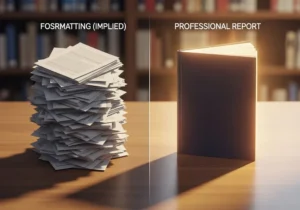
Introduction
Perfectionism in Gifted Students is a topic that deserves close attention from educators, parents, and counselors alike. When we talk about gifted students, we refer to more than just a desire to do well. It’s a relentless pursuit of flawlessness that can cause stress, anxiety, and even hinder a student’s true potential. Understanding the roots and impact can empower adults to provide the right guidance and support.
What Is Perfectionism in Gifted Students?
Gifted students is characterized by an unyielding need to meet extremely high standards, often self-imposed and sometimes unrealistic. Many gifted students are praised from a young age for their intelligence, which may inadvertently reinforce the belief that mistakes are unacceptable. This can manifest in their academic work, creative pursuits, and even their relationships with peers and teachers.
Types of Perfectionism
Not all is the same. Some may display healthy striving, where high standards motivate them to excel. Others, however, experience maladaptive perfectionism, where the fear of making mistakes leads to procrastination, avoidance, or even refusal to attempt new challenges. Understanding the distinction is essential when addressing perfectionism.
The Impact of Gifted Students
Perfectionism in gifted students affects not only academic performance but also emotional well-being. While a drive for excellence can lead to outstanding achievements, it can also result in excessive stress, test anxiety, and a reluctance to ask for help. It can make them sensitive to criticism, resistant to feedback, and fearful of failure.
Emotional Consequences
The emotional consequences of gifted students are significant. They may become anxious before assignments, especially high-stakes projects like an Overleaf Thesis or a major exam. The thought of not achieving a perfect result may lead to sleepless nights, irritability, or even depression.
Social Impacts
Socially, perfectionism in gifted students can hinder relationships. They may avoid group work, fearing that others’ efforts will not meet their standards. Some may become critical of peers or withdraw socially to protect themselves from judgment. Also cause isolation, as they might feel no one else understands the pressure they put on themselves.
Causes of Perfectionism in Gifted Students
Understanding why these students develop is key to addressing it effectively.
Internal Factors
Many gifted students internalize high expectations early in life. They may tie their self-worth to achievement and equate mistakes with personal failure. It is often reinforced by their own beliefs about intelligence and success.
External Pressures
Parents, teachers, and even peers can contribute. Well-meaning adults may praise only the outcomes, rather than the effort, which sends the message that only perfection is valued. Competitive environments, like advanced classes or selective gifted programs, can also fuel perfectionism in gifted students.
Recognizing the Signs of Perfectionism in Gifted Students
It’s important for adults to recognize such behavior before it becomes debilitating. Warning signs include extreme distress over minor errors, reluctance to submit assignments until they are “just right,” excessive time spent on simple tasks, and frequent negative self-talk. This behavior might also show up as procrastination or an unwillingness to attempt new or challenging tasks.
Strategies for Addressing Perfectionism in Gifted Students
Addressing perfectionism in gifted students requires a thoughtful and proactive approach. Here are some effective strategies:
Encourage a Growth Mindset
Help gifted students understand that intelligence and abilities can be developed through effort, practice, and learning from mistakes. Praise persistence, resilience, and creative problem-solving rather than flawless results. Remind them that perfectionism in gifted students is not a requirement for success.
Normalize Mistakes and Failure
Create an environment where mistakes are seen as a natural part of the learning process. Share stories of famous people who failed before succeeding. Let students know that everyone makes mistakes, and it’s how they respond that matters. Addressing perfectionism in gifted students means showing them that failure is an opportunity to grow, not a catastrophe.
Set Realistic Expectations
Work with gifted students to set achievable goals and timelines. Break large projects into manageable steps to reduce overwhelm. Encourage them to focus on progress, not perfection. Regularly remind students that can hinder, rather than help, their development.
Model Healthy Behavior
Teachers and parents should model healthy attitudes towards mistakes and setbacks. Show students how to reflect on errors, make adjustments, and move forward. When adults share their own challenges and how they overcame them, it provides a powerful example for addressing it.
Offer Social-Emotional Support
Gifted students need outlets to express their feelings about perfectionism. Provide opportunities for counseling, peer support groups, or mentorship with older students who have faced similar challenges. Encourage open conversations about stress, pressure, and coping mechanisms. Remind them that is common but manageable.
The Role of Schools and Parents
Schools play a crucial role in supporting gifted students who struggle with perfectionism. Teachers should receive training on recognizing and addressing it properly. Parents can collaborate with schools to ensure their children’s needs are being met, both academically and emotionally.
Home Strategies
At home, parents can help by being supportive listeners, emphasizing effort over outcome, and avoiding over-scheduling. Encourage downtime and hobbies that are not performance-based. Remember that addressing perfectionism in gifted students requires patience and consistent support.
When to Seek Professional Help
If perfectionism in gifted students leads to significant distress, anxiety, depression, or a noticeable decline in performance, it may be time to seek help from a counselor or psychologist. Early intervention can prevent more serious problems and help students develop lifelong coping skills.
Conclusion

Perfectionism in gifted students is a complex challenge that can limit both happiness and achievement if left unaddressed. By recognizing the signs, understanding the causes, and using effective strategies, adults can help gifted students develop healthier attitudes towards success and failure. From tackling big assignments like an Overleaf Thesis to managing daily schoolwork, the key is to teach that growth, effort, and resilience matter far more than a flawless record. By addressing perfectionism in gifted students, we prepare them not just for academic success, but for a balanced and fulfilling life.

I’m Ethan Richards, the guy running the show at “Acknowledgment Templates.” I’ve been playing with expressions and formats to make acknowledgment writing a whole lot of fun. Over at Acknowledgment Templates, we’re here to make your acknowledgment section incredible. Let’s add some professionalism and gratitude to your project together!












